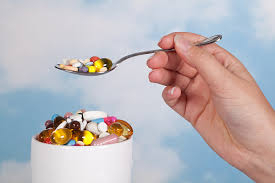New Data Suggests that ADHD is Misdiagnosed 75% of the Time!
I attended a workshop a few weeks ago on the DSM 5 (Diagnostic and Statistical Manual for Mental Disorders). This book is used by mental health practitioners to diagnosis mental health disorders in children and adults. It contains research, data, treatment options and lists of symptoms to help assess a diagnosis.
This book has gone through several revisions over the years and strives to be as accurate as possible with the research and testing that is available. This latest version, DSM 5, has been in development since 1999 with a task force of experts from around the world contributing to its contents.
There are many significant changes, especially related to children….but the information that immediately grabbed my attention was this statistic: In their research groups, 75% of people who have been given the diagnosis of ADHD have a false positive diagnosis. What this means is many of these people have symptoms that look like ADHD, leading to the diagnosis, but actually do not have it. The misdiagnosis is most often the result of not collecting enough information from the client, not factoring in family and cultural issues, and not assessing the person’s ability to effectively process information.
Well, all of this is about to change. The new DSM 5 is going to require clinicians, teachers and parents to look at the whole picture before a diagnosis is given. This is great news, especially as it relates to children. I see so many children in schools and in my office who present with symptoms of ADHD. The parents and teachers are confused and frustrated and hoping there is an alternative to medication. The decision to put a child on medication is a difficult one, especially if the symptoms are not truly a function of ADHD. So how do you know what to do?
This is where I come in. I am so thankful and excited to know about the Nurtured Heart Approach. This approach is the foundation of my work with parents and teachers. By learning how to implement the NHA in your home or classroom, you are able to discern the difference between behavior that is truly ADHD (out of their control) and behavior that is serving another purpose (within their control). The NHA has kept thousands of children off unnecessary medications AND helped the child regain control of their lives. They experience success in school, with friends and at home. And guess who gets all the credit? You!! approach is to equip teachers, parents and other youth leaders with powerful tools that help transform intense children from the inside out. There are several services I provide giving the adults the tools they need to help all children flourish: Schools consulting, teacher coaching, parent coaching and community workshops.

